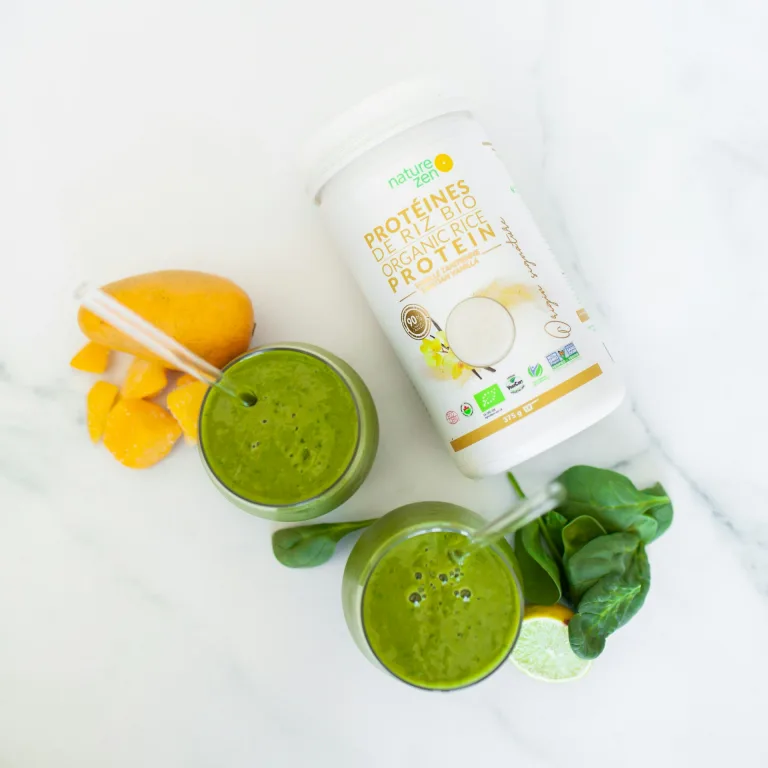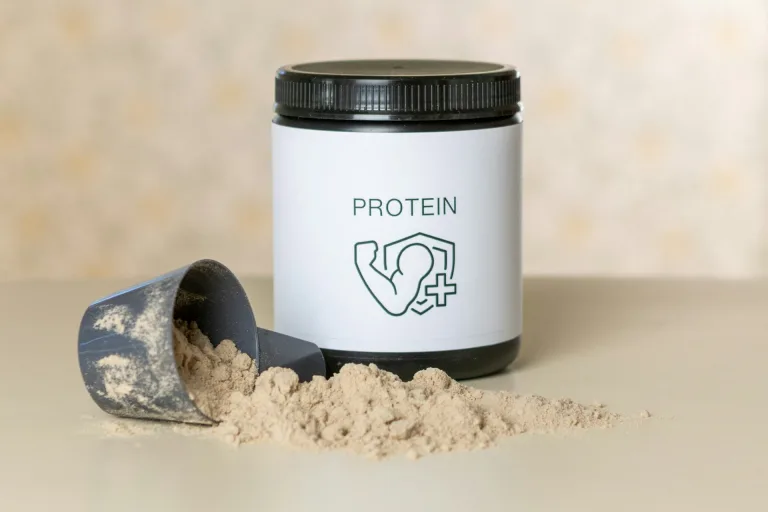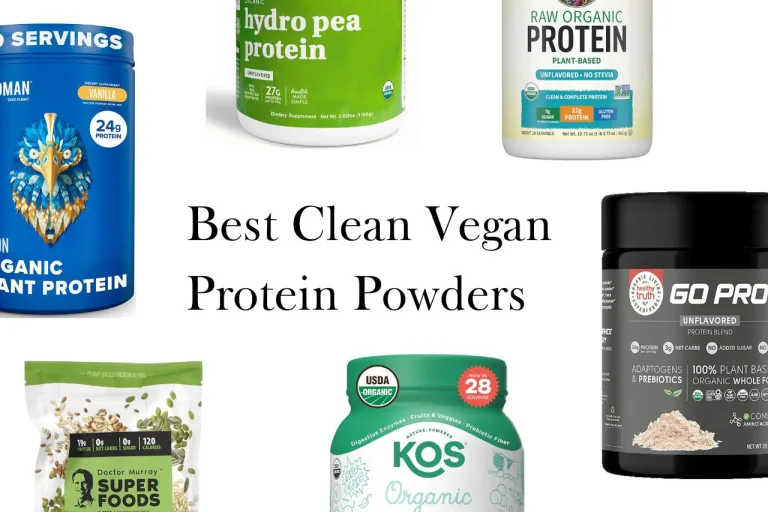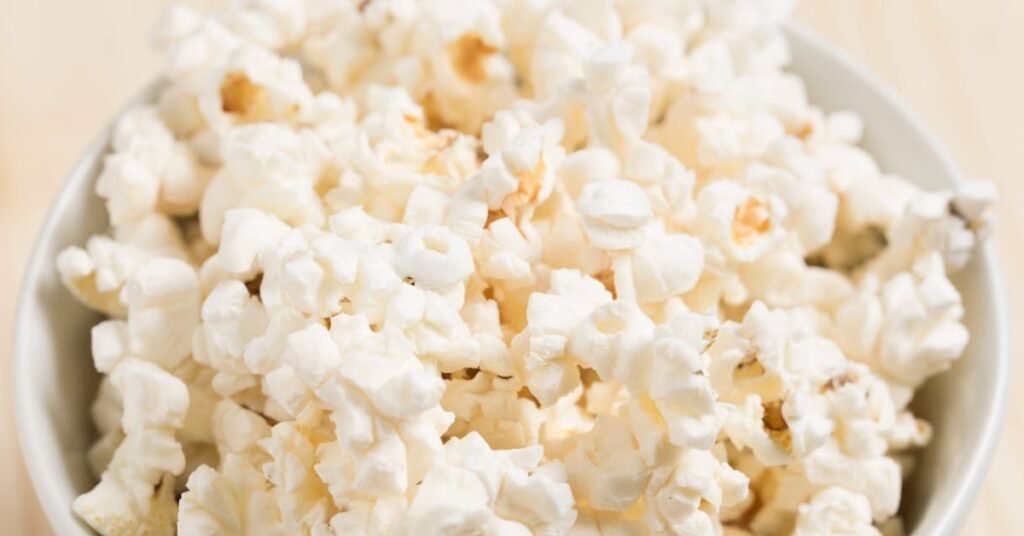Article Updated on 18/07/2025 by Silvija Meilunaite
In a perfect world, we would consume only whole foods and do not need supplements or protein powder. Unfortunately, we live in the real world, and some days, we are swamped and don’t have time to make sure every meal is nutritionally perfect.
As much as I understand that protein powders are highly processed and should not be used daily, I also understand that with daily exercise and being so active, I must ensure that my body has amino acids to function. Protein powders are crucial in supporting our active lifestyles, providing the amino acids for our bodies to function optimally.
HOW IS VEGAN PROTEIN POWDER MADE?
Vegan Protein powder is made through a series of processes that extract protein from a food source, concentrate or isolate it, and then convert it into powder. Here’s an overview of how plant-based protein powders are produced:
1. Extraction
- Mechanical Pressing: Oil is extracted through pressing for seeds and nuts (like hemp, almond, and sunflower). The remaining meal has a higher concentration of protein.
- Soaking and Grinding: The raw material is soaked in water and ground into a slurry for sources like soy or pea.
2. Separation
- The slurry is processed to separate protein from carbohydrates and fats using one of two methods:
- Centrifugation: Using centrifugal force to separate different components based on density.
- Filtration: Employing various filters to segregate proteins from other elements in the slurry.
3. Concentration and Isolation
- The extracted protein is then concentrated or isolated to increase its purity:
- Concentration: Involves heating the protein slurry to remove water and concentrate the proteins- typically about 60-80% protein.
- Isolation: Involves further processing, often using alcohol or acid washes, to remove additional non-protein parts. This creates a protein isolate- typically 90-95% protein.
4. Drying
- The concentrated or isolated protein is then dried mostly by Spray drying, which causes the water to evaporate quickly, leaving behind a fine powder.
5. Flavoring and Packaging
- Many protein powders are flavoured and sweetened, and other additives like thickeners or vitamins might be added.
- The final product is packaged in airtight containers to protect it from moisture and contamination.
The specific methods can vary significantly from brand to brand. Additionally, some strategies focus on retaining other nutrients.

PROTEIN CONCENTRATE OR PROTEIN ISOLATE, WHAT IS BETTER?
Protein concentrate is the better choice if you want a more natural product that is closer to whole food. It’s less processed and retains more of the original dietary fibre, fats, and vitamins.
However, if you need a higher protein content with fewer carbohydrates, fats, and calories per serving, more processed protein isolate may be your option.
IS VEGAN PROTEIN BETTER THAN ANIMAL-BASED?
When you eat protein, your stomach breaks it down into smaller peptides. This process continues in the small intestine, where the peptides further break down into individual amino acids. The body then absorbs these amino acids into the bloodstream. Once absorbed, they contribute to the body’s amino acid pool, which creates new proteins, such as muscle or enzymes, and other compounds like hormones.
The source of the protein, whether plant or animal, doesn’t affect this process. The critical factor is whether the protein is “complete” (containing all nine essential amino acids) or “incomplete.” Typically, animal proteins are complete, whereas plant proteins may lack one or more essential amino acids. However, you can consume various plant proteins or choose a plant-based protein powder labelled as “complete” to ensure you have all the essential amino acids.
Animal proteins tend to be more digestible and are richer in certain nutrients like vitamin B12 and heme iron. Still, plant proteins contain fiber and phytonutrients and do not contain cholesterol.
If you are worried that choosing a Plant-based protein powder will not be as efficient as whey, for example, you should keep two things in mind:
- Choose a vegan that is labelled “complete.”
- If you choose incomplete protein, make sure to eat foods that are rich in the specific nutrient that is missing. For example, if you buy pea protein that is great for muscle growth but is slightly lacking in methionine, make sure to include Brazil Nuts, sesame, chia hemp and sunflower seeds, as well as soy products, in your diet for the full protein synthesis.
- You might need a larger amount of vegan protein to match the same level of amino acids of animal protein.
Let’s compare Soy and Whey protein to see the difference:
Table: Essential vs. Non-Essential Amino Acids in Soy and Whey Protein Powder (per 30g serving)
| Essential Amino Acids | Soy Protein (g) | Whey Protein (g) |
|---|---|---|
| Histidine | 0.6 | 0.5 |
| Isoleucine | 1.2 | 1.7 |
| Leucine | 2.1 | 2.8 |
| Lysine | 1.6 | 2.7 |
| Methionine | 0.3 | 0.6 |
| Phenylalanine | 1.3 | 0.9 |
| Threonine | 1 | 2 |
| Tryptophan | 0.3 | 0.4 |
| Valine | 1.2 | 1.6 |
This table shows that whey protein generally contains slightly higher amounts of essential amino acids than soy protein, particularly in amino acids such as leucine, lysine, and threonine, which are critical for muscle growth and recovery. So, to match the Whey protein amino acid composition, take more soy protein or choose a mixed plant-based protein powder formulated specifically for your needs.
WHAT VEGAN PROTEIN POWDER IS COMPLETE?
To compare plant-based protein powders, including soy, rice, hemp, pea, almond, sunflower seed, and chia seed, I will list their essential amino acids and their quantities per serving.
For a protein to be considered complete, it needs to have these 9 Essential Amino Acids:
- Histidine
- Isoleucine
- Leucine
- Lysine
- Methionine
- Phenylalanine
- Threonine
- Tryptophan
- Valine
Let’s compare the most popular plant-based proteins: Soy, Rice, Hemp, Pea, Almond, Sunflower and Chia seed to see which one is superior.
Estimated Amino Acid Content and Total Protein per Serving (approx. 30g) of Plant-Based Protein Powders
| Amino Acid | Soy | Rice | Hemp | Pea | Almond | Sunflower Seed | Chia Seed |
|---|---|---|---|---|---|---|---|
| Histidine | 0.64g | 0.21g | 0.24g | 0.74g | 0.22g | 0.40g | 0.24g |
| Isoleucine | 1.12g | 0.33g | 0.41g | 1.53g | 0.38g | 0.54g | 0.42g |
| Leucine | 1.90g | 0.63g | 0.69g | 2.38g | 0.68g | 0.87g | 0.70g |
| Lysine | 1.60g | 0.26g | 0.38g | 2.01g | 0.18g | 0.46g | 0.32g |
| Methionine | 0.34g | 0.14g | 0.21g | 0.26g | 0.10g | 0.21g | 0.12g |
| Phenylalanine | 1.17g | 0.41g | 0.49g | 1.65g | 0.49g | 0.61g | 0.50g |
| Threonine | 0.87g | 0.26g | 0.29g | 1.02g | 0.20g | 0.35g | 0.34g |
| Tryptophan | 0.34g | 0.10g | 0.13g | 0.27g | 0.07g | 0.13g | 0.12g |
| Valine | 1.23g | 0.41g | 0.53g | 1.68g | 0.46g | 0.60g | 0.47g |
| Total Protein | 25g | 15g | 20g | 25g | 20g | 21g | 18g |
Soy is the only plant protein typically considered a complete protein, containing all essential amino acids in adequate amounts.
Here’s a brief look at the amino acid profiles of the other Plant-based Proteins:
Nearly complete protein:
- Pea Protein: Nearly complete but slightly low in methionine and cysteine.
- Chia Seed Protein: Nearly complete but can be low in lysine.
- Hemp Protein: Nearly complete but somewhat low in lysine and leucine.
Incomplete protein:
- Almond Protein: Incomplete, low in lysine and other essential amino acids.
- Sunflower Seed Protein: Incomplete, low in lysine and isoleucine.
- Rice Protein: Incomplete protein, low in lysine.
Let’s look at each vegan protein in a bit more detail
1. Soy Protein
- Nutrient Profile: Soy protein is a complete protein containing all essential amino acids. It also includes vitamins and minerals, including B vitamins, iron, and calcium.
- Health Benefits: It supports muscle growth and repair and is beneficial for heart health because it can lower cholesterol levels.
- Considerations: Some people might avoid soy due to allergies.
2. Pea Protein
- Nutrient Profile: Pea protein is nearly a complete protein, though slightly lower in methionine. It’s also high in iron and the three main branched-chain amino acids (BCAA) that help muscle growth and repair: leucine, Isoleucine, and Valine.
- Health Benefits: Good for muscle growth, hypoallergenic, and typically easy to digest.
- Considerations: It’s great for people allergic to dairy and soy, but its slightly earthy flavour may not suit everyone.
3. Hemp Protein
- Nutrient Profile: Contains all essential amino acids but at lower levels than soy or pea. It’s high in fibre and omega-3 fatty acids.
- Health Benefits: Good for heart health and digestion.
- Considerations: Lower protein content per serving compared to soy and pea, and more expensive.
4. Rice Protein
- Nutrient Profile: A good source of protein, though not a complete protein (low in lysine).
- Health Benefits: It is very easy to digest.
- Considerations: Often combined with pea protein to achieve a more complete amino acid profile.
5. Sunflower Seed Protein
- Nutrient Profile: Fairly complete in amino acids and rich in fibre and healthy fats.
- Health Benefits: Good for muscle maintenance and general health, supports cardiovascular health.
- Considerations: Like hemp can be more expensive and harder to find.
6. Chia Seed Protein
- Nutrient Profile: Not only provides protein but is also high in omega-3 fatty acids, fibre, and antioxidants.
- Health Benefits: Supports cardiovascular health, digestion, and sustained energy.Considerations: Lower in protein content per serving compared to others.

What else should you consider when buying a vegan protein powder?
When choosing a good quality Plant-Based protein powder, the most important thing is to choose a “complete” protein powder with all amino acids. To achieve the best formulation, you will probably get a mixed source plant-based protein powder that will be formulated to make sure there is a significant amount of each essential amino acid. But there are a few more things to consider when choosing:
3 main branched-chain amino acids
When choosing Plant-based protein powder, choose the ones that are high in 3 main branched-chain amino acids (BCAA) that help muscle growth and repair.
Leucine:
Is critical for protein synthesis and muscle repair. It plays a key role in activating the mTOR pathway, which is essential for muscle growth.
Isoleucine:
Important for muscle metabolism and is heavily involved in muscle repair and energy regulation. It helps in glucose uptake into cells and contributes to hemoglobin production.
Valine:
Essential for muscle growth, tissue repair, and energy provision. It also helps maintain nitrogen balance in the body and can be used as an energy source by muscles.
Other Ingredients
Some brands add flavourings, sugars, bulking agents and preservatives, so make sure you buy a protein powder that is clean from all of those.
If you are consuming vegan protein powder regularly, make sure it is made from the highest quality ingredients. I always select organic protein, especially if it contains soy.
Heavy Metal Contamination
Plant-based proteins tend to have more heavy metal contamination than whey, as depending on the area where plants are grown, they tend to accumulate heavy metals from the soil. When choosing your plant-based protein, try to find products that are tested for heavy metals.
In general, rice protein and chocolate-flavored protein powders tend to have the heaviest metal contamination. pea and unflavored protein powders seem to have the least contamination.
Taste
Some proteins taste much better than others, so it doesn’t matter if the powder is good quality if you are not going to consume it. Test a few to see what flavour you prefer, or dilute it with other ingredients so much that you can’t taste it.
Brand/ Country
Ensure it is from a reputable brand that meets the quality and is checked and certified by authorities.
Cost
Like with everything, just because a product is more expensive doesn’t mean it is of better quality. Just because an influencer on Instagram promotes the powder doesn’t mean it is the best you can buy.
I have spent a lot of time researching the best plant-based protein powders out there and compiled a list that should help you choose the best vegan protein powder: BEST PLANT PROTEIN POWDERS WITH NO BS INGREDIENTS
To conclude:
I am cautious when using supplements in my diet, and the more I learn about nutrition, my views on protein powders keep changing. At this point, I do not use them every day but have a protein smoothie after a workout when I know I might not have a high protein meal later. We all should rely on real, whole food when trying to hit our protein needs and should use plant-based protein powders sparingly.
Please Note: This post is for informational purposes only and is based on research. It’s not medical advice. It’s always best to consult a healthcare professional with health concerns. Enjoy reading!
- https://www.sciencedirect.com/topics/agricultural-and-biological-sciences/soy-protein-concentrate
- Langyan, S., Yadava, P., Khan, F. N., Dar, Z. A., Singh, R., & Kumar, A. (2022). Sustaining Protein Nutrition Through Plant-Based Foods. Frontiers in nutrition, 8, 772573. https://doi.org/10.3389/fnut.2021.772573
Silvija Meilunaite, PN1-NC, CSMC, is a certified nutrition and menopause coaching specialist who writes about midlife health, nutrition, and evidence-based wellness. She focuses on research-driven approaches to feeling better in your 40s and beyond, with a special interest in low-tox living and supportive daily habits.
- This author does not have any more posts.






